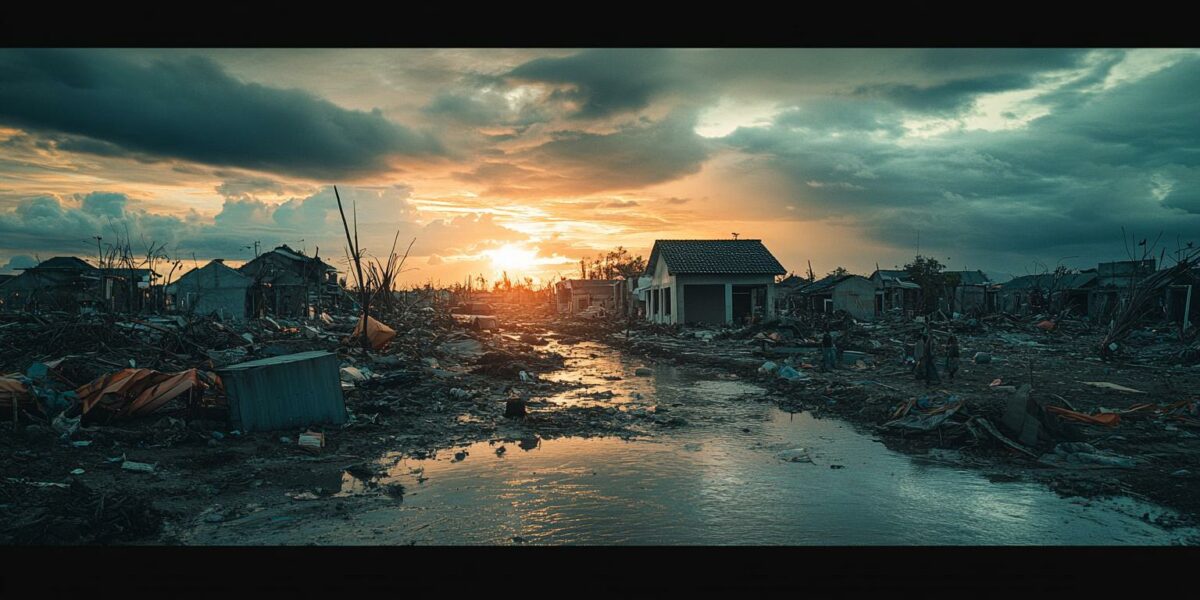The Growing Mental Health Crisis
Recently, I addressed a gathering in Sub-Saharan Africa on the critical need for community networks to combat the mental health issues caused by the climate-ecosystem-biodiversity (C-E-B) crisis. The audience resonated with the urgency, noting how the crisis is leading to widespread social, psychological, and emotional distress in their communities.
Their experiences are not unique; similar stories are emerging worldwide, including in the U.S. I emphasized that while building resilience is vital, traditional concepts of resilience fall short. Instead, I proposed the idea of “transformational resilience.”
The worsening C-E-B crisis demands a new approach to resilience—one that goes beyond merely enduring hardships. Many people mistakenly believe resilience means bouncing back to previous conditions, but this perspective is increasingly unrealistic.
The relentless nature of the crisis leaves little room for recovery, making the idea of returning to pre-crisis states impractical. Furthermore, many marginalized and low-income populations do not aspire to return to their previous conditions; they seek to elevate their health, safety, and well-being above pre-crisis levels.
Transformational Resilience: A New Paradigm
Current lifestyles contribute significantly to the C-E-B crisis through activities like resource extraction, consumption, waste, and fossil fuel use. Returning to these habits post-crisis will only exacerbate the problem, highlighting the need for transformational resilience.
This concept invites us to use the hardships caused by the crisis as a catalyst for change. By recognizing the destructive assumptions and behaviors that led to this situation, we can find new sources of meaning and purpose.
Transformational resilience is not a fixed endpoint but a continuous process akin to “post-traumatic growth.” This approach is especially relevant to the C-E-B crisis, as it calls for fundamental changes in our thinking and practices to address mental health and psychosocial issues.
Key aspects of transformational resilience include:
- Shifting mindsets to recognize new realities
- Adopting innovative practices for sustainable living
- Building stronger, more resilient communities
The Transformational Resilience Cycle
The cycle begins when a crisis shatters people’s deeply held beliefs and overwhelms their ability to cope. Initially, many attempt to regain control and return to their old ways, but this often fails as the crisis deepens. This leads to a period of disorientation and distress.
During this phase, some individuals may become disconnected from reality, while others might turn to harmful coping mechanisms such as substance abuse. Blame and aggression can also surface, further complicating the situation. However, the refusal to adapt only exacerbates the crisis.
When people finally accept that they cannot revert to old ways, they enter the transformation phase. This stage is characterized by a newfound clarity and a willingness to learn and innovate, leading to new pathways and opportunities.
People often discover strengths they didn’t know they had, develop stronger relationships, and find deeper appreciation for life. This transformation fosters greater empathy, generosity, and emotional stability, which are crucial for enduring future adversities.
Empowering Through Transformation
The capacities developed during the transformation process help individuals build resilience against future stresses. Many become motivated to reduce the C-E-B crisis to manageable levels and assist others in doing the same. This collective effort can significantly mitigate the crisis’s impact.
As new crises emerge, the transformational resilience cycle will continue, providing a framework for ongoing adaptation and growth. This cycle empowers individuals to face challenges head-on and emerge stronger and more resilient.
Sharing these insights with the group in Sub-Saharan Africa underscored the inevitable chaos the C-E-B crisis will bring to everyone’s lives. Embracing transformational resilience can lead to the creation of healthier, safer, and more ecologically regenerative conditions.
Ultimately, the transformational resilience cycle offers a pathway to not just survive but thrive amidst the ongoing climate crisis. By continuously adapting and finding new meaning, we can build a more just and sustainable world for all.



aubrey_odyssey
Totally agree that marginalized communities need more than just a return to pre-crisis conditions. Elevating well-being is essential!
easton
🙂 Loved the emphasis on empathy and generosity. These qualities are often overlooked in resilience discussions!
brooklyn
I’m all for innovative practices, but isn’t it too idealistic to think everyone will change their behaviors?
AdamXanadu
Great article! I think focusing on mental health in the context of climate change is crucial.
audreygalaxy1
This idea of transformational resilience is very compelling. How can we encourage policymakers to adopt this approach?
elenavoyager
Post-traumatic growth” sounds promising, but how do we ensure people don’t fall into harmful coping mechanisms first?
AlexisMidnight9
Wow, what a detailed analysis! Does anyone know of any real-world examples where transformational resilience has been successfully implemented? 🤔
HarrisonStardust
Interesting read! But are there any specific strategies to help communities shift their mindsets?
isaacluminous
Thank you for shedding light on this important topic! Transformational resilience seems like a much-needed approach.